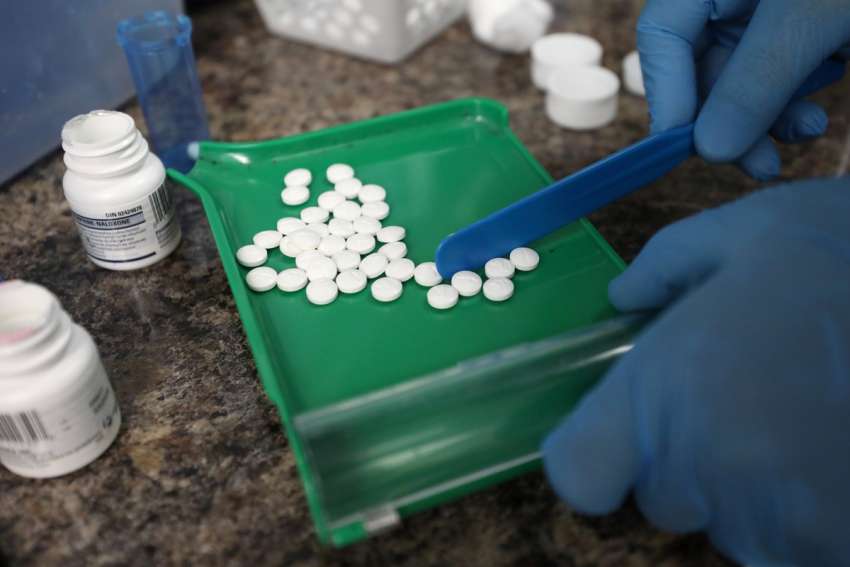Calling drug abuse “a public health matter, not a criminal justice issue,” the British Columbia government says decriminalization of illicit drug possession will reduce stigma and barriers that prevent people in crisis from seeking help.
But is unconditional decriminalization the answer to getting people the support they need?
Advocates point to Portugal as being a successful example of decriminalization, with below-average rates of drug abuse and overdose deaths compared to the European Union average since the program’s inception in 2001.
However, the Portugal program involves a comprehensive network of services and strict controls tied to decriminalization, an approach British Columbia is not taking. Says Dr. Joao Goulao, the architect of Portugal’s program: “It’s very difficult to identify a causal link between decriminalization by itself and the positive tendencies we’ve seen… it’s a total package.”
A closer match to what British Columbia is doing is Oregon’s decriminalization program, which began in 2021. In its January 2023 audit, the Oregon Secretary of State says it’s “too early” to assess the program’s effectiveness, but says “multiple silos” and “fragmentation in the delivery of mental health and substance use disorder treatment” are concerns.
A June 3, 2023 report in the New York Post quotes Oregon Health Authority figures that, in the first year of decriminalization, 16,000 people accessed services for drug treatment but only 136 people, 0.85 per cent, actually enrolled in programs to stop drug addictions.
Although British Columbia’s official decriminalization policy is in its infancy, a January 2023 National Post column points out that, since 2020, the British Columbia bureau of the Public Prosecution Service of Canada has been telling its lawyers not to seek criminal penalties in cases involving personal drug possession. The column also points to a 2021 British Columbia Association of Chiefs of Police report finding that 54 per cent of British Columbia RCMP Detachment Commanders surveyed said their police officers weren’t enforcing parts of the law covering personal possession of illicit drugs.
In essence, British Columbia has practised unofficial decriminalization for at least two years, yet the province has experienced unprecedented overdose death levels in 2021 and 2022.
The idea that decriminalization alone will encourage more people to seek help isn’t strongly substantiated by experiences in British Columbia and Oregon so far.
The danger in implementing an unconditional drug decriminalization policy to fight stigma is that it gives the implicit message that drug use is acceptable and consequence-free. The flip side of stigma and criminalization is that they can be powerful incentives for many people to stay away from drugs.
For instance, a section of a Canadian government Court System report on mandatory minimum penalties contains a list of factors that deter crimes. Two include: “Those who will experience shame or embarrassment as a result of their involvement in a crime are less likely to commit that crime”; and “Generally, those who believe they are likely to be caught and punished will be less likely to commit a criminal act.”
There must be a strong focus on preventing drug abuse in the first place. Peer pressure, abuse and trauma, financial burdens, boredom and physical pain are some of the many emotional, physical and psychological triggers driving people to turn to drugs for relief.
That is why investments in public health care, mental health, housing and other sectors are so vital. Programs and services that address peoples’ struggles and peoples’ ability to have supportive social and family networks go a long way to nipping drug use in the bud.
For those in the grips of drug addiction, the British Columbia government is correct in characterizing drug abuse as being “a public health matter.” It’s a mental and physical health situation requiring treatment, compassion and a non-judgmental attitude.
It’s also a valid concern that those who need help the most, particularly the homeless and other vulnerable people, may not come forward if they’re afraid of being jailed if caught with illicit drugs.
Law enforcement officials, health-care workers, advocates and others should come together to create a procedure that addresses this concern. It’s possible to support the vulnerable without diminishing the seriousness of drug use, which destroys users’ bodies and minds and affects those around them.
(Majtenyi is a public relations officer specializing in research at an Ontario university.)


